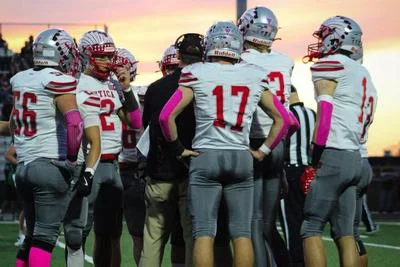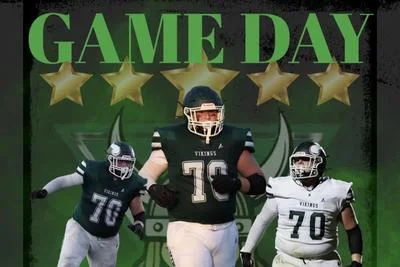Let’s talk about the reason they play the games.
Did you ever get frustrated watching your team play poorly or just be outplayed so dominantly that you walked away, turned the TV off or wondered why they even need to continue the game? Did you ever study a matchup and wonder why they should even play when one team was so obviously superior to another? From casual sports fans to die-hard enthusiasts, it crosses many minds on occasion.
But thank goodness the scheduled games are played and entire contests are played out, because comebacks, underdog wins and surprises are what real sports excitement is all about.
Let’s start with March Madness. Last Monday, favored Kansas University started hot with a 7-0 lead, then was outhustled, outshot, outwitted and outplayed for the rest of the first half by North Carolina, who took a 16-point lead and was up 40-25 at halftime. The Jayhawks were down by 15 to a good team, and KU looked as bad as a team can look. That noted “intellect” Charles Barkley observed that other commentators were handing the game to the Tar Heels. Barkley said, “That’s why they play two halves.” Right he was, as the Jayhawks started hitting their shots and played tenacious defense, and that coincided with sloppy play and poor shooting from NC for KU to take the lead and the game, 72-69. Kansas's 16-point comeback is the largest in NCAA title game history, passing the previous mark of 15 points set by Loyola Chicago against Cincinnati in 1963.
The outcomes aren’t official until the final buzzer, final gun, final horn or final out.
So why play two halves? Comebacks happen. In a regular-season NCAA game, Drexel was down by 34 points to Delaware in 2018 and won. In the NFL, the San Francisco 49ers rallied from 28 points behind to beat New Orleans in 1980. In baseball, the 2001 Seattle Mariners won 116 games and had a 12-0 lead over the Cleveland Indians, and the Tribe came back to win in 11 innings, 15-14. In the NBA, the Utah Jazz came back from 36 points down to beat the Denver Nuggets in 1996. The "Miracle on Manchester" remains the biggest single-game comeback in Stanley Cup playoffs history. In 1982, the L.A. Kings came back from a 5-0 deficit against the Wayne Gretzky-led Edmonton Oilers at the start of the third period to win the game in overtime.
Being behind doesn’t stop the necessity of playing games out to their end. You play two halves, nine innings or 18 holes (or 72), run the full mile-and-a-quarter (horse racing), drive 500 miles (auto racing) and play a full 162-game season.
More than playing complete games is playing the games themselves. Why play the games? Yankees Hall of Famer Derek Jeter was once asked what other teams are playing for when the Yankees were so stacked. Jeter looked at the questioner and said, “That’s why we play the games. You don’t win on paper, you win on the field. Every team can win on the field, and you have to stay healthy and play well to win it all.”
Upsets are part of the fabric of all sports. The Joe Namath New York Jets shocked the old-school football world by knocking off the Baltimore Colts for the first AFL win over the NFL in Super Bowl III – 1969. The 1954 Cleveland Indians upset the heavily favored New York Giants, and the 1969 Mets beat the Baltimore Orioles in the World Series. In NBA championship series, the 2004 Detroit Pistons and 1969 Boston Celtics both defeated the favored L.A. Lakers, and in Olympics hockey’s “Miracle on Ice” in 1980, the U.S. defeated the USSR en route to the gold. In the Kentucky Derby, Country House won in 2019 at 65-1, Giacomo was a winning 50-1 shot in 2005, and Mine That Bird won at 50-1 in 2009.
Play the games. Favorites don’t always win. Since 1985, 16 teams that entered the NCAA tournament unranked made the Final Four. MLB favorites win games at a clip of 57.5 percent, and in April, underdogs on the road (“road dogs”) win 48 percent of the time. Here are some odds: In the NFL, faves win 66 percent of the time, in the NBA, 67 percent and in the NHL, 60 percent. In boxing, the favorites punch to win 71 percent of the time. A favorite wins thoroughbred horse races 33 percent of the time, a figure that has remained constant for 100 years.
Clearly, favorites have the advantage, but they do lose and lose often. Over a long season, with fatigue, injury, slumps, hot players, career seasons and other factors, your Cinderella team has a chance.
So be optimistic … your baseball team was tied for first the morning of April 7, and your hockey and basketball teams are either rebuilding for next year or are in the playoffs with a shot to win it all. Your horse can win the Derby. Play the games. What do you think? Let me know at mike.blake@mountvernonnews.com.
See you next time.







